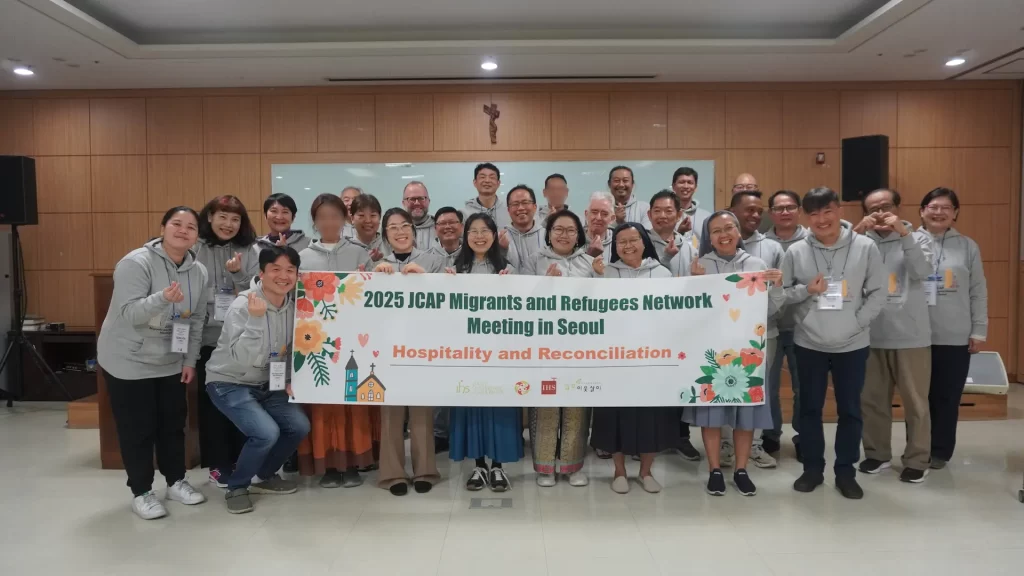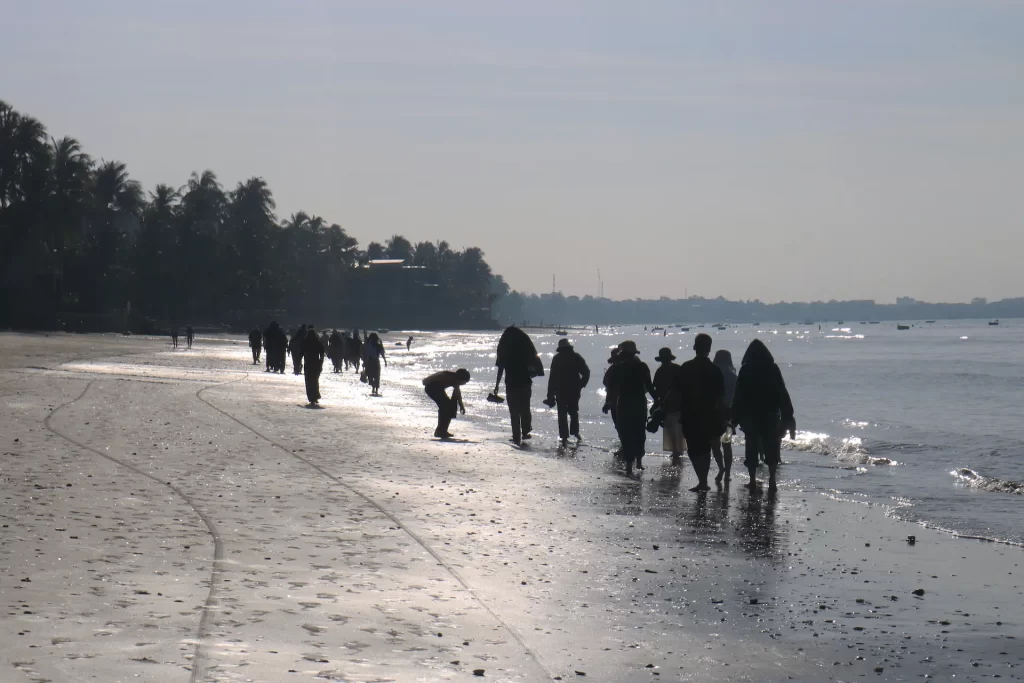The seafood factory on the southwestern coast of Thailand is sometimes referred to as the “Burmese university in Ranong”. It is one of the few opportunities available to many Burmese migrant children denied an education due to chronic poverty and social pressure.
“Once the students are 12 years old, their parents encourage them to leave school to work in the factories so that they can support the family,” said Irene Ho, who as project director of the JRS migrant learning centres encourages communities to value education and seeks to mitigate the barriers facing Burmese children trying to go to school.
“We want to support the children to go as far as they can in their schooling,” added Ms Ho.
But, as many representatives from international organisations have found, economic hardship often pressures families to withdraw children before completing secondary school.
“Poor wages in low skilled jobs mean that every member of the family has to work,” explained Pakpoom Sawankhum, a field officer with Raks Thai, a grassroots NGO working with Burmese migrant communities throughout Thailand.
Economic hardship is not the only obstacle faced by children in their search for an education. Family and peer pressure encourage children to join their friends and parents in the factory, while limited quotas and exclusion of Burmese children from some Thai schools are also major stumbling blocks.
“Lack of awareness among migrant population and Thai host communities, coupled with prejudices and discrimination remain the main ingredients responsible for the lack of enrolment in schools of migrant kids,” said Claudia Natali, IOM Labour Migration Programme manager based in Bangkok.
Since the 2005 Education Act, the Thai government has tried to increase attendance rates through teacher training to decrease prejudice, and by granting migrant children the freedom to travel, without the risk of arrest, to schools regardless of the documents they hold.
Thai policies have been paramount to efforts to universalise education in Thailand, according to the IOM and JRS.
While school attendance has increased, rates still remain low for a variety of reasons.
“Tension between Burmese and Thai communities and fear of identification as irregular migrants also pose barriers for the school attendance of migrant children,” said Pauline Aaron, JRS Thailand Director. “Facilitating cooperation between schools, parents, and communities is key.”
JRS currently supports six migrant learning centres, attended by roughly 900 students who can acquire a basic education, in English, Thai and Burmese languages. The education provided in the learning centres helps to prepare students for Thai schooling, if they choose to attend.
While many Thai schools accept Burmese migrant children, some remain exclusive to Thai nationals due to limited space and resources.
Schools also face challenges with Burmese students dropping out in the middle of the school year.
“The school headmaster budgets for a certain number of students. If many of them drop out mid-year, the school faces an issue with numbers not matching their financial allotments,” said Ho.
JRS conducts outreach with communities and parents to show the value of schooling, whether in migrant learning centres or Thai schools.
“Our children have a right to education. Our job is to help them realise that right, and open up more opportunities for them in the future”, said Ho.
The official government policy by the Council of Ministers of Thailand asserts that all children, regardless of legal status in Thailand, are entitled to cost-free education until the age of 15, according to the Ministry of Foreign Affairs.
While the necessary laws are in place to bind schools to accept migrant children, the MFA insists that public campaigns are necessary to encourage more migrant parents to send their children to schools, and allow them to finish.
“From 2013 to 2015, we will continue public outreach out to families to help them realise the value of education,” said Ho.
Caption for photo: Migrant children in Ranong attend a JRS supported learning centre to help them prepare for integration into Thai secondary schools.
This article was first published in the website of Jesuit Refugee Service Asia Pacific.






